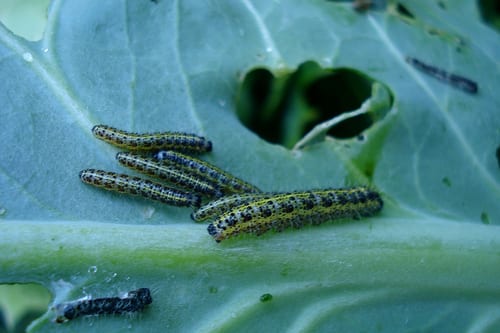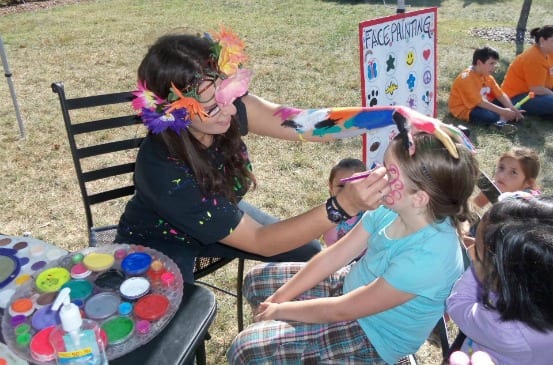Let’s Get This Garden Started Right

For many first-time gardeners, the thought of planning and planting a garden is an overwhelming one, often followed by thoughts of all the pests and critters that can affect the outcome. But, with a little planning, it doesn’t need to be a scary undertaking and, in fact, can be a fun, educational journey! As Rocket City Mom’s Farmer-In-Residence, I thought it might be helpful to answer a couple of your backyard gardening questions.
Reader Question: What are the best vegetables to grow for a first-time gardener?
My suggestion would be to start with the types of vegetables you enjoy eating and go from there. Most vegetables, given adequate sun and water will do well, but an element some beginning gardeners neglect is soil quality. In our region, amending soil with manure and/or compost is a MUST. Alabama/Tennessee soil composition doesn’t have the nutrients in it naturally to grow a broad range of veggies, so unless you’re using raised beds with 100% bagged garden soil, you’ll need to add some of the good stuff in.
There are some things that I have better luck with than others. I love tomatoes and peppers, but for some reason mine just never really take off (I am trying some new techniques this year, so we’ll see). And then, certain years are always “The Year of…” One year it was The Year of the Squash, the following it was The Year of the Cucumber. You may find this to be true for you, too.
I have had tremendous success with cucumbers, squash, and sweet potatoes. For all three of these, I’ve learned that manure compost produces outstanding plants with tremendous yields. Sweet potatoes also store well; for example we are still eating from last summer’s harvest. Squash also freezes and cans well, and cucumbers you can pickle. All three of these plants will need enough room to sprawl. The Year of the Squash here at the farm saw a massive, 3’ tall and 6’ wide squash plant – the biggest I’d ever seen & large enough to hide in! I would say that big of a plant isn’t exactly typical, but sure shows the power of manure!

If space is a concern, you could try a small plot of beans (in my garden, I’ve had success with bush green beans), eggplant (one plant can produce enough for a family of 4), or even something as small as radishes. Radishes are so easy to grow and they mature quickly – if you are looking for something to give you a quick boost of confidence, radishes would be my number one suggestion.
If you are open to trying something outside of vegetables, herbs are also a great way to get into the gardening spirit, plus they typically do well in containers given enough water. Basil, sage, thyme, oregano, and mints do extremely well in the North Alabama/Southern Tennessee climate and are great, hardy plants to start with. All are perennials, with the exception of the basil. All require full sun. A note on the mints, however. If you are planning on putting these plants in your beds, DON’T!!! Most books will recommend you simply plant the entire pot to keep it from spreading. I did this and now have an entire bed of spearmint and mint. My advice is to leave it in its container, and put it on your deck or patio to enjoy.
Reader Question: “What, in your opinion, is the most destructive garden pest. How do you prevent it?”
The answer to this question can vary from year to year, and from garden to garden. For example, one year I had the most amazing, productive crookneck squash plants. That same year, my next door neighbor had an infestation of squash bugs that impacted her yields.

Prevention is key, so be sure to start off on the right foot by having healthy plants, healthy soil, and adequate water. Also, walking through your garden and checking plants each day is helpful. Look for evidence of impending problems – holes in leaves, moths and/or worms (cabbage worms, for example), etc. You can hand pick and destroy any worms that you find. Be sure to check under leaves – there may be evidence of smaller insects or eggs.
One of the most destructive and annoying garden pests are cabbage white butterflies and worms. I remember my grandparents and parents always using Sevin dust to take care of this nuisance, which worked really well. However, if you’re striving towards having a chemical-free garden, like me, it’s a little more difficult. There are organic dusts available but frankly, I have found they don’t work as well and require constant application.
Floating row covers can help to prevent infestation in the first place; you can place these over your plants in the spring and early summer, when the egg-laying activity is at its height. Another option would be to put each cabbage head into a nylon stocking and simply leave it on until you harvest. Of course, make sure there aren’t any worms in there prior to putting the stocking on!
A technique I’ve been experimenting with is the idea of companion planting and inter-planting. This is not a new idea; in fact, it is the original ‘green’ gardening method that our grandparents and generations before have used. For example, my family has always planted marigolds with tomatoes; turns out that marigolds helps reduce nematodes, which attacks the roots of tomatoes. There are many websites and books out there that provide further information on this very topic; my experimentation with this is still in its infancy, so it’s a bit early to say whether it’s a success or not. That will be a later article!

A very excellent FREE resource on pests and gardening in general is available at The Alabama Cooperative Extension Services publications site – here you will find a list of on various insects and diseases, plus they have other fun publications such as planning a pizza garden with your kids.
As you embark on your gardening journey, no doubt you’ll encounter various pest challenges, but there’s always resources available to help you, so don’t ever feel overwhelmed or discouraged. At one point, I felt I couldn’t even grow a container garden, now I have this huge garden that I take great delight in!
Although Stacy De Smet grew up on a dairy farm in south-central Pennsylvania, she never anticipated becoming a farmer herself, but that's exactly what happened when she and her family moved to a small farm in Taft, TN, in November of 2005. Over the years they have turned Misty Ridge Stables into a thriving family farm. In addition to boarding horses and running a local CSA, they also offer classes in canning, gardening and many other farm related topics.





